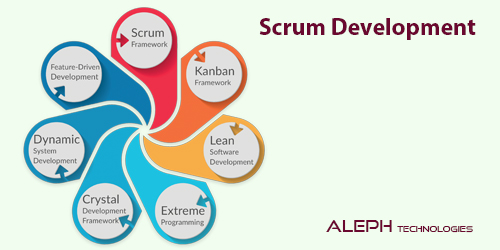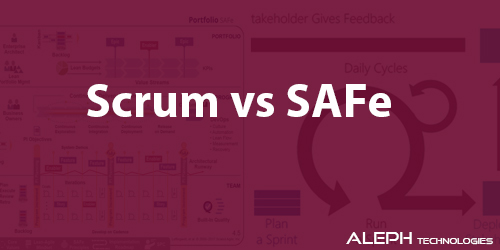The Role of a Release Manager
Jan 29, 2024
Paul Gurrapu
5 minutes read
0 comments
905 views
Role and Responsibilities
When organizations delivered a couple of major software activities per quarter, having multiple levels of release management made little sense. There was a lot of ceremony around the launch of these large, waterfalls -based projects, however the release frequency was lower. Today, there are large organizations with several projects seeking limited "runway" space through testing environments and production support resources. With most organizations delivering a few of significant software activities consistently or consistently, combined with quicker, increasingly self- service releases, your organization needs somebody focused on release coordination and alignment across multiple departments.
SAFE Framework
Scrum
Product Owner
Agile
Scrum
The Release Manager owns the Release Management process and has the responsibility and specialist for the general process results. The Release Manager is responsible for the overall quality of the process. He/she is the main coordinator within the process and is the point with respect to releases for both the customer and the IT organization. Thus, all managers in the IT organization must help him in his/her role. Release management is the process of managing, planning, scheduling and controlling software built through various stages and situations; including testing and delivering software releases.
Relationship with Continuous Delivery, DevOps, and Agile software development
Organizations that have adopted agile software development are seeing a lot of higher quantities of releases. With the increase in the popularity of agile development another way to deal with software releases known as Continuous delivery is starting to influence how software transitions from development to a release. One objective of Continuous Delivery and DevOps is to release increasingly reliable applications quicker and all the more regularly.
The development of the application from a "build" through various conditions to a production as a "release" is a part of the Continuous Delivery pipeline. Release managers are starting to use tools, for example, application release application release automation and nonstop combination tools to help develop the process of Continuous Delivery and incorporate a culture of DevOps via automating a task so that it tends to be accomplished all the more rapidly, dependably, and is repeatable. More software releases have prompted increased dependence on release management and automation tools to execute these complex application release processes.
Relationship with Enterprise Release Management
While Release Management focuses on the changes from development to testing and release for a single project or a collection of related projects, Enterprise Release Management (ERM) is focused on the coordination of individual releases inside a bigger organization. An organization with various application development teams may require a profoundly coordinated arrangement of releases over different months or years to execute a vast scale framework. ERM includes the organized effort of various release managers to synchronize releases with regards to an IT portfolio.
Relationship with ITIL/ITSM
In organizations that manage IT activities utilizing the IT Service Management paradigm, explicitly the ITIL framework, release management will be guided by ITIL ideas and standards. There are a few formal ITIL Processes that are related to release management, basically the Release and Deployment Management process, which "expects to plan, timetable and control the development of releases to test and live environments” and the Change Management process In ITIL organizations, releases will in general be less successive than in an agile development condition. Release forms are overseen by IT tasks teams utilizing IT Service Management ticketing frameworks, with less focus on automation of release processes.
Role and Responsibilities
- Forward Plan the release windows and cycles over a portfolio
- Manage risks and resolves issues that affect release scope, schedule and quality
- Measure and monitor development to guarantee application releases are delivered on time and within budget, and that they meet or exceed expectations
- Coordinate the release content and effort based on the service request backlog, pending service requests, third party applications, or operating system updates
- Communicate all key project designs, commitments, and changes including requirements, QA designs, schedule, and scope changes
- Manage connections and coordinate work between different teams at different locations
- Conduct Release Readiness reviews, Milestone Reviews, and Business Go/No-Go reviews
- Produce Deployment, Run Books and Implementation Plans
- Weekly Release Reporting
- Communicate release details and schedules to the Business as required
- Negotiate, plan and deal with all release activities
- Work with release engineers to understand impacts of branches and code combines
- Maintains the release plan for all core services and ensure alignment across key partners and vendors.
- Continually work towards making developments in the release process
- Lead and co-ordinate the Go-Live activities including the execution of the deployment Plans and checklists.
- Develops contents and automation tools used to build, integrate, and deploy software releases to various platforms
- Participate in CAB meetings to talk about release scope as well as roadblocks
- Maintains a release repository and manage key data, for example, fabricate and release methods, dependencies, and notification lists.
- Researches new software development and configure the management methodologies and technologies and analyses their application to current configuration management needs.
Qualifications of Release Manager:
- Bachelor's degree in Computer Science or related field
- 2-6 years of the previous release and additionally project the management experience.
- 8-10 years of involvement in data frameworks projects environment in frameworks investigation or development
- Formal training in project management practices preferred
- Developed knowledge of software development lifecycle
- Demonstrated capacity to facilitate cross-functional work teams toward task completion consummation
- Demonstrated effective leadership and analytical skills
- Advanced written and verbal communication skills are a must
- General PC knowledge including Microsoft Office expert level information of Excel, working Knowledge of Access
Add Your Comment
Related posts
-

Scrum Development: A Comprehensive Overview 🚀
Mar 25, 2024 -

Understanding Scaled Agile (SAFe) and Disciplined Agile Delivery (DAD)
Mar 25, 2024 -

Scrum vs SAFe: Unveiling the Differences 🔄
Mar 25, 2024 -

Why Release Management Matters in Agile Projects 🚀
Mar 25, 2024

Please login to check comments